As a coffee shop owner, it has become a norm for me to see my social circle filled with new products from Luckin Coffee from time to time. We independent coffee shops watch these products from capital consortiums, feeling that they compress our living space on one hand, while on the other hand, they are indeed very effective in promoting coffee culture in China. From the perspective of us independent shop owners, their products are actually hard to gain recognition in the industry; firstly, the coffee-making process is fully automated, and the theoretical knowledge and practical experience of baristas seem to lose all significance.
However, if I were in a city like Guangzhou where the rent is around two thousand, I would also choose Luckin over an independent shop. Because their hourly wage is something independent shops cannot offer, and their store management is far better than that of independent shops. Independent shops only provide emotional satisfaction, or rather, only those who want to start a business would work as baristas in independent shops.
This capital monster not only does things that we independent shops cannot do, but it also does them quite well. Why should we say that adding sugar makes it not good coffee? Why should we say that making so many new flavors means they only know how to follow trends? This time, Luckin's new product, the Sauce-flavored Latte, has once again captured everyone's attention, with various memes popping up and even trending on social media.
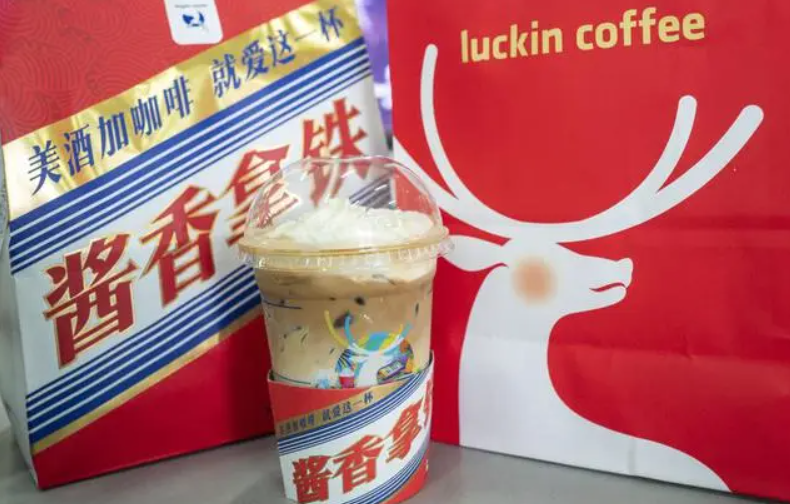
Luckin's new product is a collaboration with Moutai, simply put, it involves adding Moutai liquor to the latte. It sounds like a dark culinary creation, but in fact, the combination of alcohol and coffee has always existed. For example, the famous Irish coffee, which many Italian coffee restaurants had in the early days, is now quite rare. However, Irish coffee is more of a cocktail with coffee added to the alcohol rather than the other way around. Because the alcohol is the main component, and coffee is just an accessory. Because of this, this coffee cocktail is usually only found in Western restaurants or bars, as regular coffee shops generally do not have a license to sell alcohol.
Perhaps both alcohol and coffee are among the most beloved beverages by humans, so people keep trying to mix coffee and alcohol. It is ironic that a stimulating drink and a sleep-inducing drink are always being mixed together.
In recent years, many independent coffee shops have made similar attempts. Although coffee shops cannot sell alcohol, adding a little bit won't usually lead to complaints. The most successful one should be the Baileys Latte, which almost every independent shop has been making.
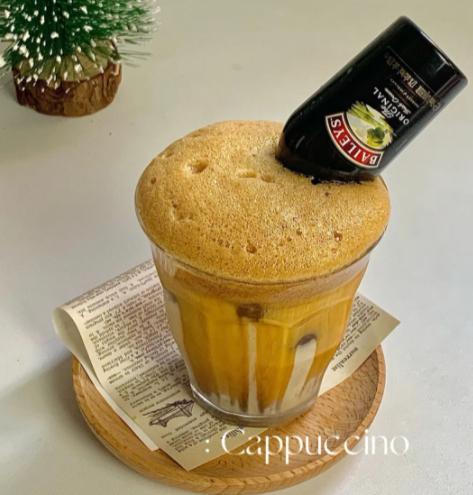
As someone who is lactose intolerant, I usually ignore lattes when I drink coffee outside. But when the Baileys Latte first appeared in various independent coffee shops, I couldn't help but order takeout from them, and I even made my own Baileys iced coffee. From the name of this product, I knew it couldn't be too bad; Baileys is often used as a coffee liqueur, and its taste is particularly creamy, mixing well with milk. Not only does the taste not clash, but it also enhances the flavor. Baileys is also inexpensive, and the production process is simple, making it a seamless and undoubtedly successful product.
Similar products include Cointreau Americano, but none have been as popular as the Baileys Latte.
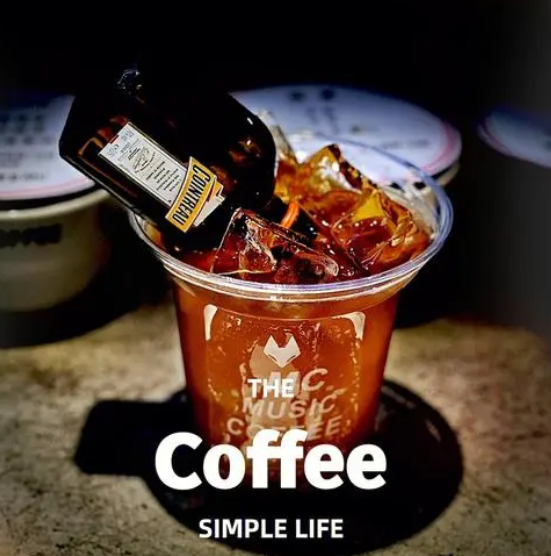
Now, Luckin Coffee's Sauce-flavored Latte is not actually a first by Luckin, but their public relations are so strong, and their user base is enormous. Similar to the attributes of Tencent QQ back in the day, Luckin's products are bound to become a hit in a short time.
About seven or eight years ago, Pacific Coffee already had similar products. I used to go to Pacific Coffee often. They had a product called the National Liquor Series, which is a mix of Chinese liquor and coffee. However, the price was simply too high, with some products costing over 60 yuan a cup. Many years ago, who could afford that? Moreover, the understanding of flavors back then was not as mature as it is now; the Erguotou coffee, Moutai coffee, and Huadiao coffee in the National Liquor Series all made me feel like they were dark culinary creations.
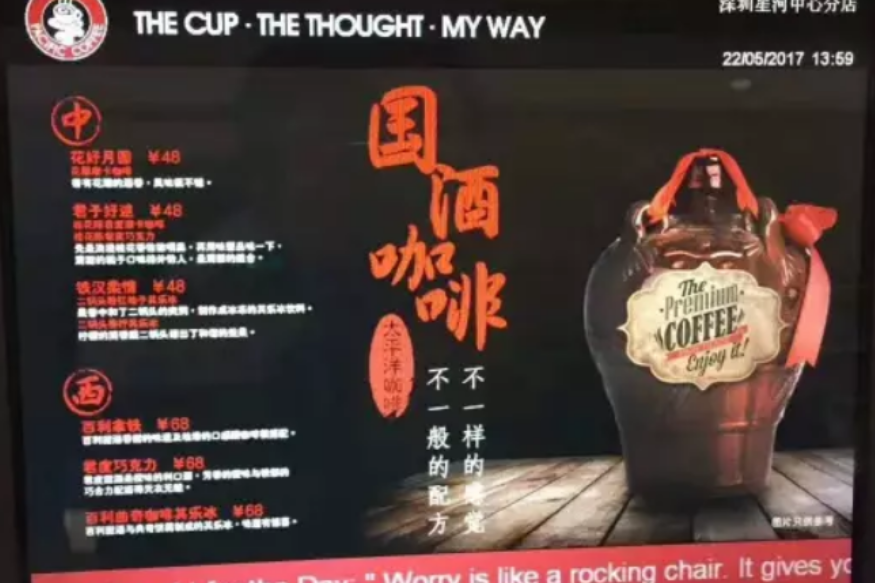
Look at it now; various coffee shops generally sell Baileys Latte for around 23 yuan, while Pacific Coffee was selling this product for 68 yuan back then. The cheapest in the National Liquor Series was 48 yuan, which is incredibly expensive compared to Luckin's Sauce-flavored Latte at 23 yuan. It is clear that Pacific Coffee's product line was aimed at the high-end market, unlike Luckin's approach targeting the masses.
With Pacific Coffee's recent poor management and the entry of various emerging brands, many new coffee drinkers have never even heard of Pacific Coffee, let alone the National Liquor Coffee Series.
Returning to Luckin's Sauce-flavored Latte, regardless of the social buzz or what others think of this product, just the brand's popularity is already very stable. You might not believe in Luckin, but you would believe in Moutai, right?
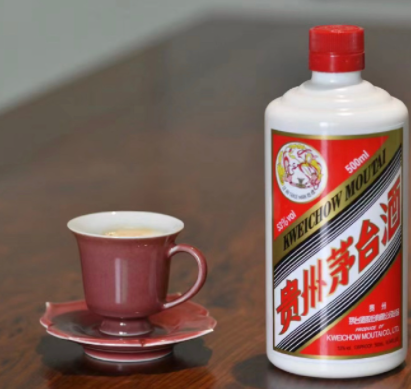
From a taste perspective, I completely believe this product won't be too bad. The sauce flavor comes from the various aromatic substances produced during the brewing process. If you open a bottle of sauce-flavored liquor and find it pleasant, this product will likely taste good to you. Luckin is smart; they didn't just add liquor directly but instead used sauce-flavor technology to mix the liquor with thick milk to create sauce-flavored milk. Perhaps this technology comes from Moutai or the thick milk.
The result of this method is that the alcohol content in this coffee is extremely low; a 250ml cup of coffee contains at most 0.5 degrees. Drinking it might be like eating an apple that has been left out for too long, and you definitely won't pass an alcohol test. Thanks to the sauce-flavor technology, while the alcohol content is reduced, the sauce flavor remains intact, and milk is inherently a great flavor blending agent.
Most importantly, ordinary people cannot easily replicate this effect; even if you have a bottle of real Moutai, you can't easily make this product.
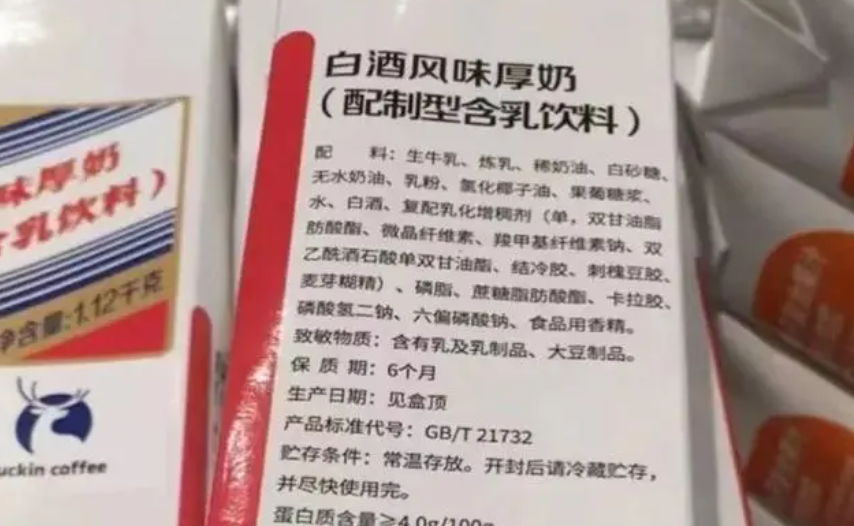
A 250ml Sauce-flavored Latte contains about 2ml of Moutai. My neighbor brought over a bottle of real Moutai that has been aged for five years, and I tried making a cup with 10ml. Even though I made it hot, the taste was still not as good as Luckin's, and the alcohol flavor was too strong. This is Luckin's strength: by blending different suppliers to create special raw materials, they enhance their products while keeping prices low, making it affordable for everyone. They can attract fans and make money at the same time.
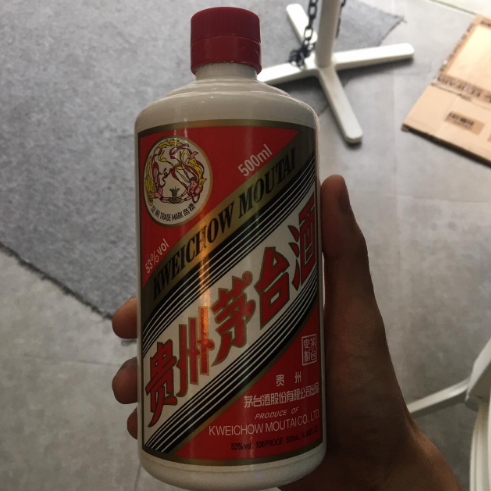
Well, I personally think this product is great, and even my white friends find it delicious. If you have the chance, everyone should give it a try.
